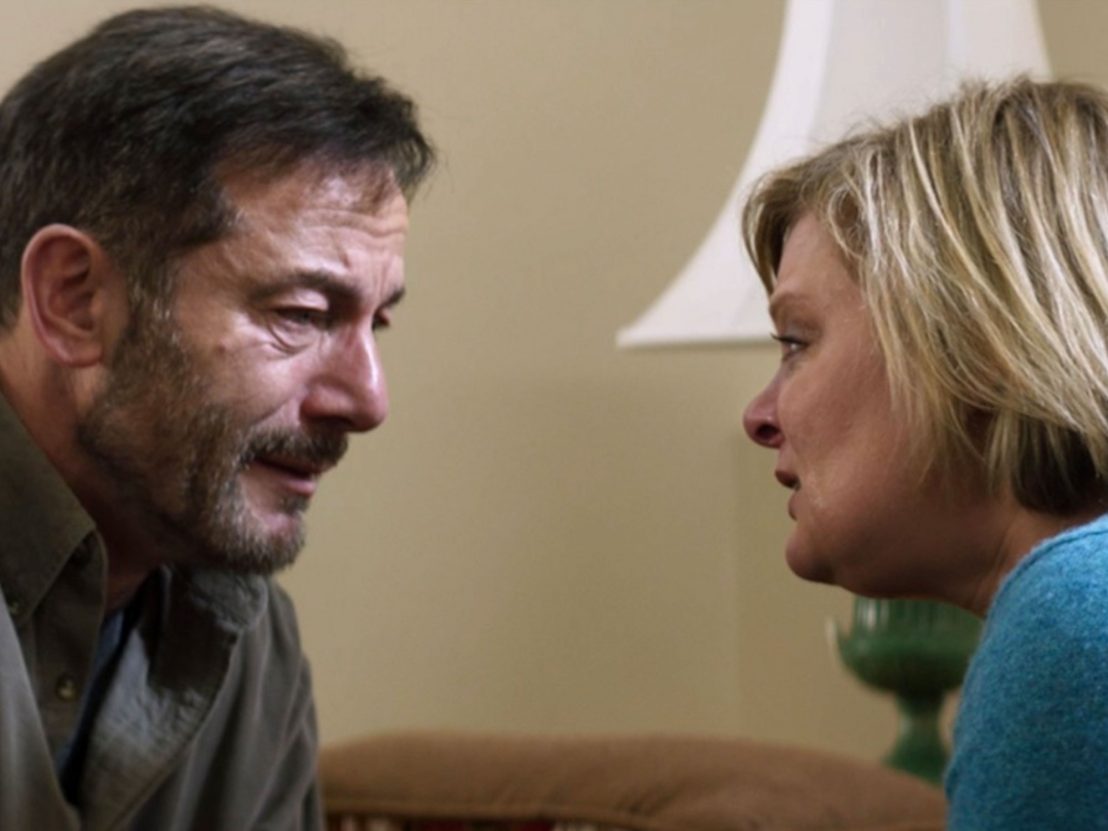
The aftermath of a school shooting is the focus of first-time director Fran Kranz’s stark portrait of familial grief.
In November 2019, CNN reported that there had been 45 school shootings in 46 weeks in the United States. Active shooter drills have become part of daily life for teachers, students and parents across the country. This horrifying statistic demonstrated an epidemic that is difficult for many people to comprehend.
In the United Kingdom, after the Dunblane massacre in 1996 saw 16 pupils and one teacher murdered at a primary school, two new Firearms Acts were introduced banning the private ownership of most handguns in the country. No such legislation has been introduced in America, where the right to gun ownership is still considered by many to be a fundamental, constitutional right, despite the reality that school shootings are far from isolated incidents.
Attempting to come to terms with a culture that would rather protect gun ownership than the lives of its children, various filmmakers have explored this controversial topic, starting with Michael Moore’s Bowling for Columbine in 2002. Since then, there’s been no shortage of films about the subject – Gus Van Sant’s Elephant, Denis Villeneueve’s Polytechnique, Lynne Ramsey’s We Need to Talk About Kevin – but Fran Kranz’s directorial debut (which he also wrote) takes a different approach.
In a quiet, carefully-prepared room in a church, two sets of parents meet for the first time. Richard (Reed Birney) and Linda (Ann Dowd) have been invited by Jay (Jason Isaacs) and Gail (Martha Plimpton) at the behest of their therapist. Years after a tragedy perpetrated by Richard and Linda’s son tore their lives apart, it seems the meeting might provide some sort of closure – but it also means revisiting the painful event after years of court-directed fallout and personal grieving.
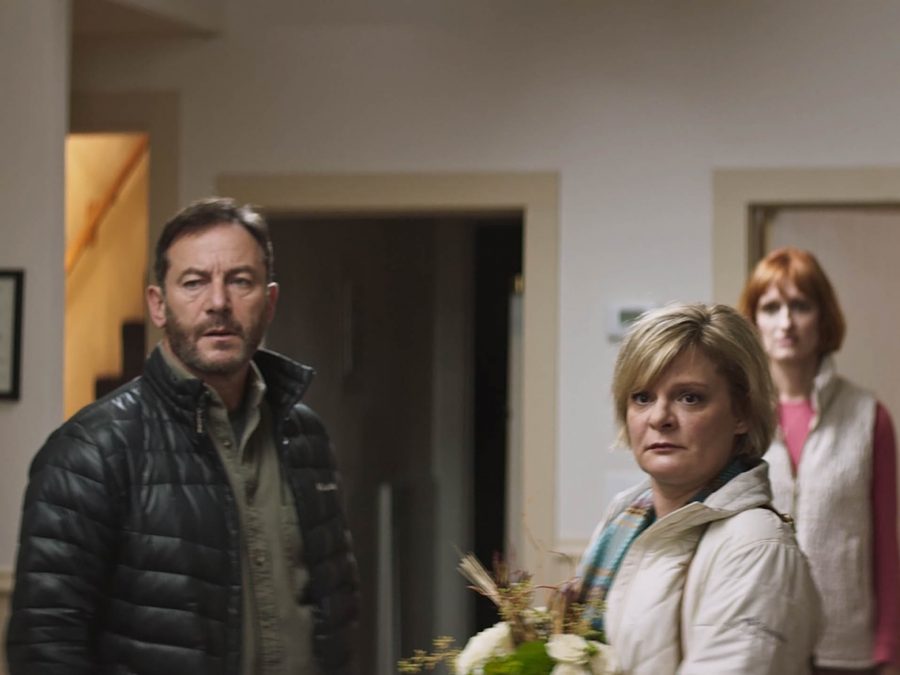
The definition of a difficult watch, Mass takes place almost entirely in a single room and consists of one long, emotionally-frayed conversation. Speaking about their sons, what they have lost, and how their lives have changed since that fateful day, Richard, Linda, Jay and Gail all struggle to articulate their feelings. Richard defaults to being defensive and citing court jargon, while Linda is tearful from the start. While Gail’s anger simmers below the surface, Jay is quietly bereft. It’s a study of human pain and anger in painstaking detail, supported by a script which is hauntingly realistic without dipping into mawkish or exploitative territory.
While most films about school shootings tend to focus on the day of the incident, Mass focuses on the aftermath and the people left behind. No parent should ever have to bury their child, let along under such absolutely horrific circumstances. It’s also fascinating to see a story which reckons with the parents of the perpetrator, in a similar way to We Need to Talk About Kevin, but without the emotional distance of Lionel Shriver’s chilly protagonist. There’s something hopelessly real about the four characters at the centre of Mass, who are ordinary people thrust into extraordinary circumstances.
The performances, particularly by Plimpton, Dowd and Isaacs, are extraordinary, and Kranz’s direction is interesting in its austereness. As a stark portrait of familial grief, Mass underlines the senselessness of its subject matter without coming across as a political screed (even though as a viewer you do start to ask how anyone can see this kind of violence occurring and not want to do something about it). Mass violence can all too often be reduced to statistics, but there’s a very real human cost which should always be the focus of these conversations. Kranz’s thoughtful film is a beautifully-judged and tender work that attempts to reckon with the unthinkable.
Published 1 Feb 2021
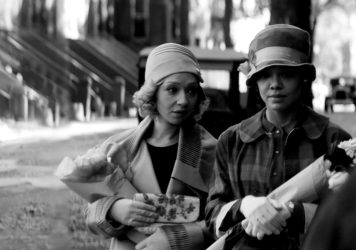
By Leila Latif
Ruth Negga and Tessa Thompson star in this slow-paced but perceptive race drama from Rebecca Hall.
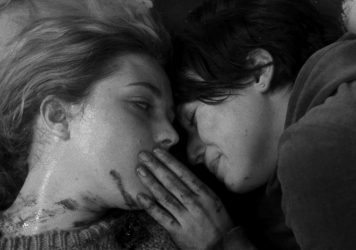
By Anton Bitel
Denis Villeneuve’s third feature, which respectfully dramatises a real-life school shooting, remains tragically relevant.
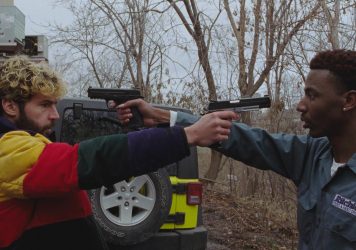
Two best friends make a suicide pact in first-time feature director Jerrod Carmichael’s uneven black comedy.